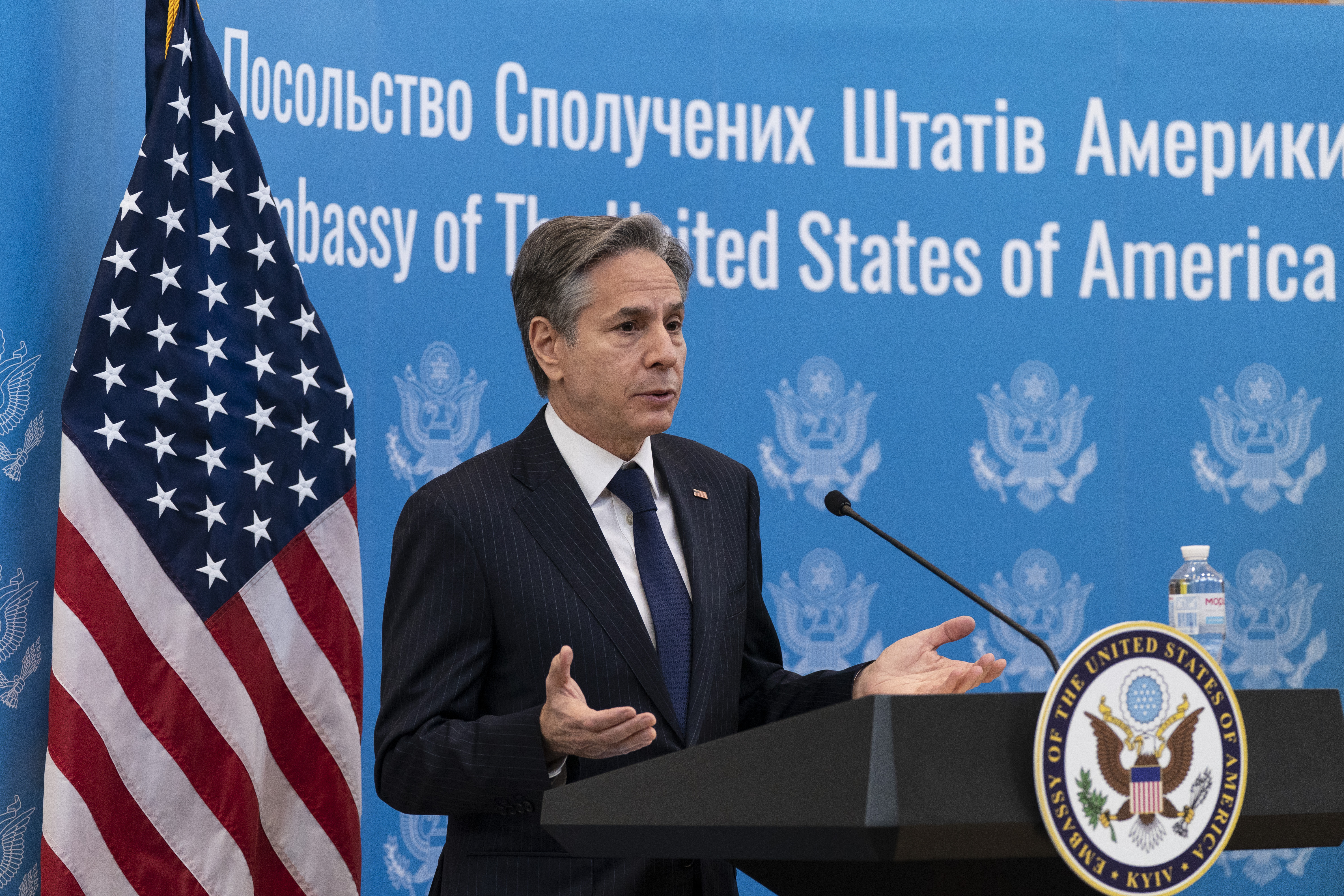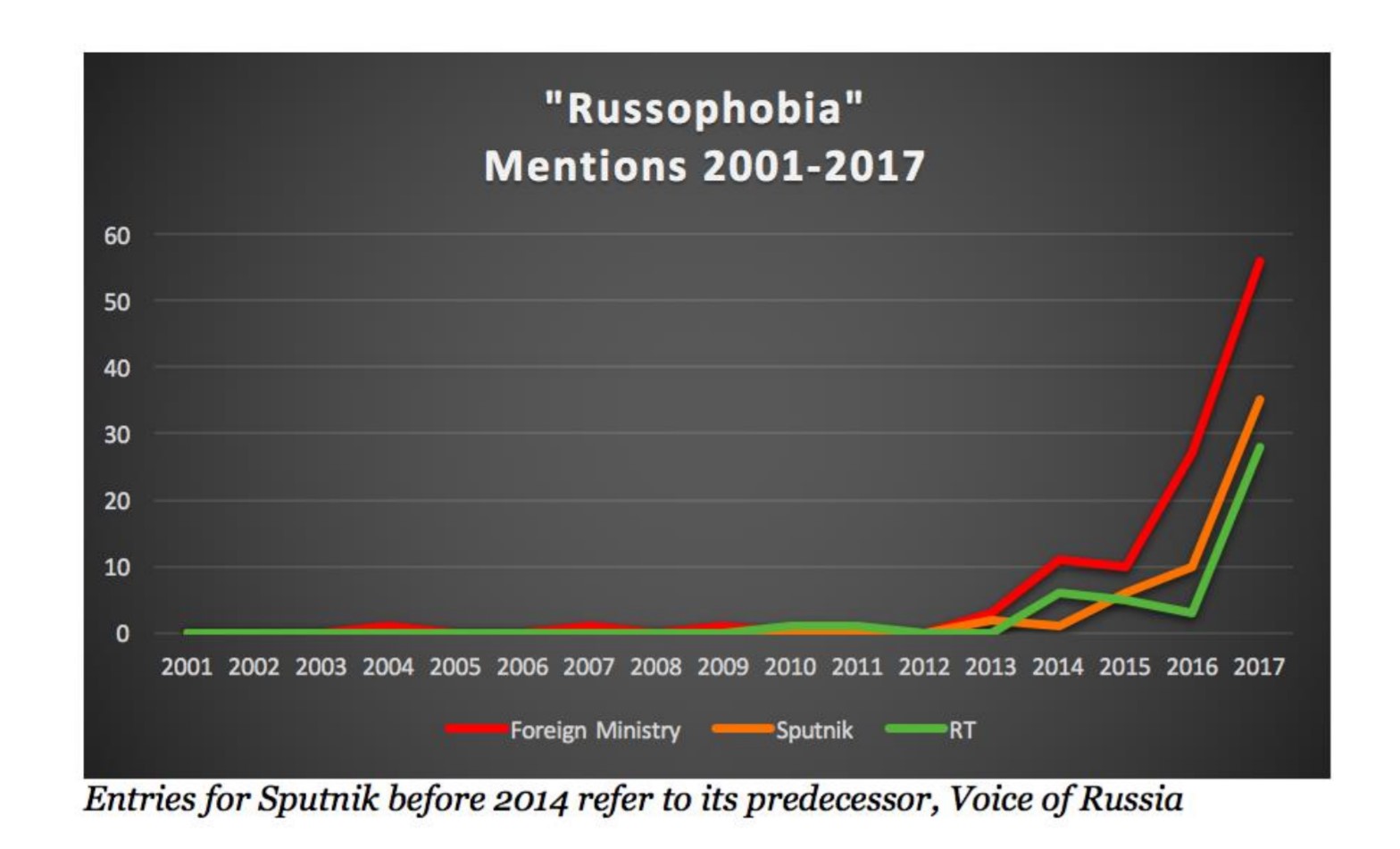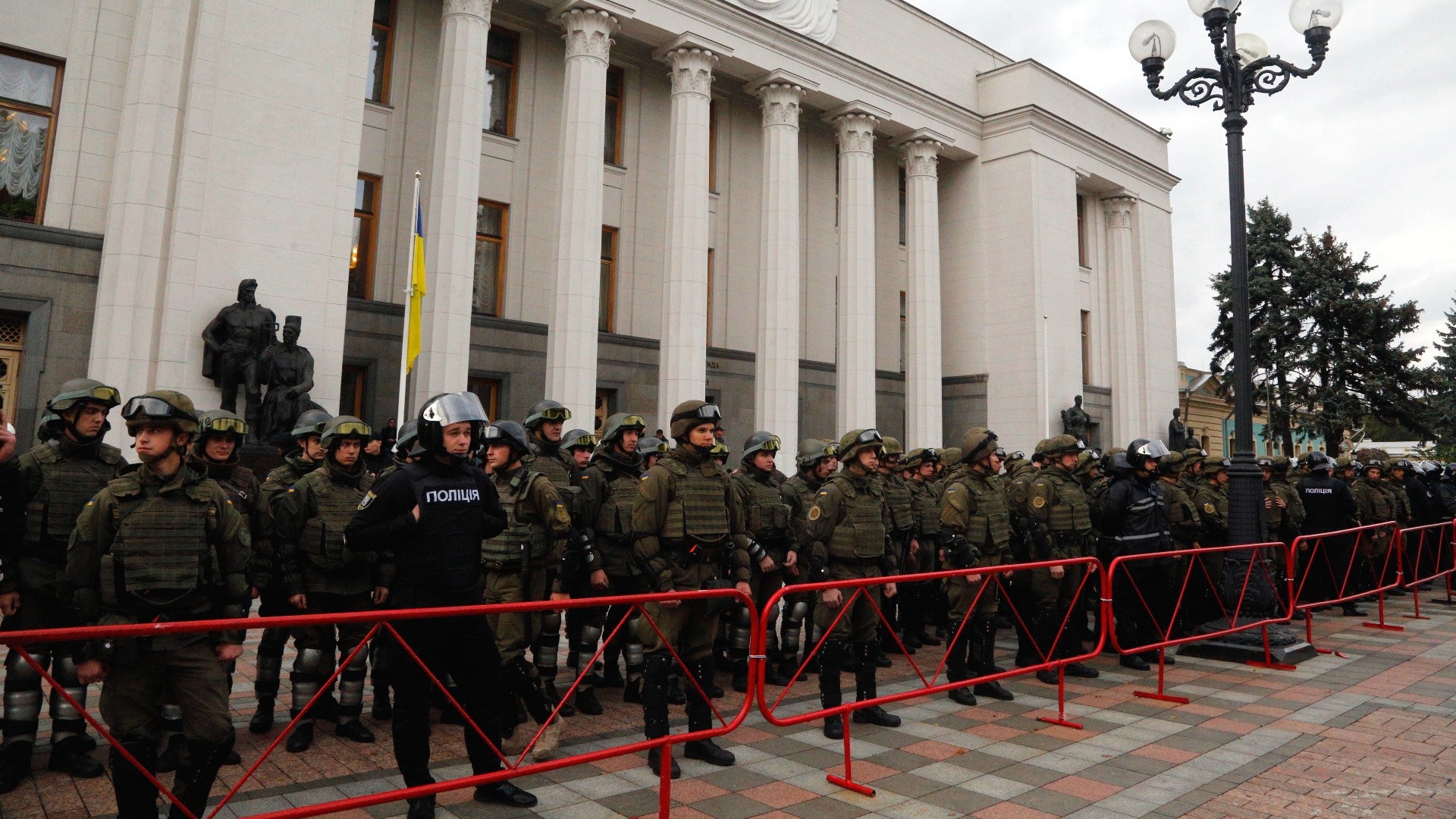A statement issued by the Department of the Treasury today claims that Russia has used its intelligence services to recruit current and former Ukrainian government officials to “prepare to take over the government of Ukraine and to control Ukraine’s critical infrastructure with an occupying Russian force.” The Department of the Treasury’s Office of Foreign Assets Control (OFAC) sanctioned the four Ukrainian individuals today after calling them “pawns” of Russia’s Federal Security Service (FSB). The unusually strong language in the department’s statement highlights the exasperation of the U.S. government as diplomatic talks continue to be characterized by Russian disinformation about its activities in Ukraine.
In the press release published today, the Treasury Department says that the four people targeted by the sanctions have “played various roles in Russia’s global influence campaign to destabilize sovereign countries in support of the Kremlin’s political objectives,” but that the U.S. is taking steps to identify, expose, and hamper Russia’s destabilization campaign. U.S. Secretary of State Antony Blinken also released a statement today along with the sanctions declaring that the United States will “continue to expose and counter Russia’s global campaign of malign influence, in Ukraine and beyond.” The statement asserts that the Ukrainian nationals targeted by the Treasury Department were working with Russian intelligence services to create instability “in advance of a potential further invasion of Ukraine.”

All of today’s sanctions fall under Executive Order 14024, dated April 15, 2021, which states that “specified harmful foreign activities of the Government of the Russian Federation […] constitute an unusual and extraordinary threat to the national security, foreign policy, and economy of the United States.” The executive order lists a range of specific activities covered under this definition that include malicious “cyber-enabled activities,” efforts to undermine free and fair democratic elections both in the U.S. and abroad, and “and to violate well-established principles of international law, including respect for the territorial integrity of states.”
Along with these new sanctions, the Department of the State issued two fact sheets today, one titled “Fact vs. Fiction: Russian Disinformation on Ukraine,” and another, “Russia’s Top Five Persistent Disinformation Narratives.” The documents address claims frequently found in pro-Russian propaganda such as “Russia is an innocent victim” or “The West is pushing Ukraine toward a conflict” and offer evidence to dispute them.
Disinformation has increasingly become a key aspect of Russia’s playbook in recent years, and the State Department fact sheets identify five common themes or false narratives found in Russian disinformation: historical revisionism, Russia is an innocent victim, the collapse of Western civilization is imminent, popular uprisings around the world are U.S.-sponsored, and “Reality is whatever the Kremlin wants it to be.”

The two Ukrainian Members of Parliament named in these most recent sanctions, Taras Kozak and Oleh Voloshyn, are members of the pro-Russian, anti-EU Opposition Platform led by Victor Medvedchuk, who has been described as having a “deep personal relationship with Russian President Vladimir Putin” and is currently under house arrest under suspicion of treason. The Department of the Treasury claims Kozak has worked alongside FSB agents to spread misinformation through several news outlets he owns, including rebroadcasting “false assertions about U.S. political candidates” throughout the 2020 U.S. elections.
Oleh Voloshyn is claimed to have cooperated with Russian agents to undermine Ukrainian government officials and push pro-Russian views. Voloshyn has ties with Konstantin Kilimnik, a Russian national with ties to Russian intelligence who was previously sanctioned for attempting to influence the 2020 U.S. presidential election.
The two former Ukrainian government officials, Volodymyr Oliynyk and Vladimir Sivkovich, are likewise alleged by the Department of the Treasury to have worked alongside the FSB. The Department of the Treasury claims that Oliynik “worked at the direction of the FSB to gather information about Ukrainian critical infrastructure” which has been the target of multiple cyberattacks in recent years suspected to have originated from Russia.
Sivkovich previously served as the Deputy Secretary of the Ukrainian National Security and Defense Council and is alleged to have worked with the FSB to build support within Ukraine for ceding Crimea to Russia in exchange for a drawdown of Russian-backed separatists in the disputed Donbas region. Sivkovich, like Voloshyn and Kozak, is alleged to have promoted a disinformation campaign against the U.S. 2020 presidential election.
Previous sanctions stemming from a separate executive order have targeted other individuals claimed to be Russian agents and who have ties to the four named in today’s Treasury Department announcement.
The new sanctions come after Secretary of State Blinken finished a two-day trip to Ukraine that included meetings with Ukrainian President Volodymyr Zelensky and Foreign Minister Dmytro Kuleba in Kyiv. “There is the path of diplomacy and dialogue to try to resolve whatever differences there are peacefully through diplomacy,” Blinken said after the meeting. “I strongly, strongly hope that we can keep this on a diplomatic and peaceful path, but ultimately, that’s going to be President Putin’s decision,” he added.
Blinken made further comments today from Berlin rebuking Moscow’s common claim that Russia is the victim of Western aggression in the current situation over Ukraine. “The United States and our European allies and partners have repeatedly reached out to Russia with offers of diplomacy,” Blinken told reporters. “So far, our readiness to engage in good faith has been rebuffed because in truth this crisis is not primarily about weapons or military bases. At its core, it’s about Russia’s rejection of a post-Cold War Europe that is whole, free, and at peace.”

Ukrainian President Volodymyr Zelensky has previously made claims, the exact details of which remain murky, that there were elements within the Ukrainian government attempting to plan a coup against him. Kremlin spokesman Dmitry Peskov dismissed the allegations, claiming that “Russia never had any plans to take part” in any coup attempt and that “In general, Russia is never engaged in that kind of thing.”
The Treasury Department’s actions and the harsh words it levied at the individuals sanctioned this week highlight the severity of the worsening situation in Ukraine as an international crisis looks more likely. While there has been some unclear messaging coming from the White House, Secretary of State Blinken has stressed that any Russian invasion of Ukraine would be met with a “swift, severe, and united response” from the United States and its allies.
Contact the author: Brett@TheDrive.com
